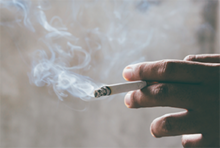George Mason University study finds large majority of universities studied made quick announcements following the World Health Organization’s pandemic declaration
New George Mason University study analyzes models of effective health sciences and training programs and communities of practice to scale future efforts.
Wrong-site surgery, medication errors, and fires in operating rooms can be devastating for patients, providers, hospitals, and insurance companies alike. Determining the true causes of these events can help hospitals improve their processes, leading to large impacts on costs and outcomes of care.
New George Mason University study of adults on probation uncovers higher levels of hostility and risk-taking among recent consumers of these high alcohol content flavored beverages
New George Mason University study highlights opportunity to increase testing for sexually transmitted infections among this high-risk population
Despite widespread clinical screening, suicide is hard to predict, but a new George Mason University College of Health and Human Services study has found a way.
Study from George Mason reveals that accurately labeling e-cigarette emissions as ‘chemicals’ or ‘aerosols’ rather than ‘vapor’ increases the perceived risk of exposure. Higher perceived risk is linked to stronger support for smoke-free campus policies.
New George Mason University Study examines how readiness and practice characteristics affect quality improvement (QI) strategy implementation in primary care.
Mason and other Virginia colleges adopt screening tool for real-time surveillance, early detection, and coordinated reporting of COVID-19.
George Mason University study finds 2009 U.S. Food and Drug Administration flavored cigarette ban reduced smoking by underage youth by 43% and young adults by 27%.


